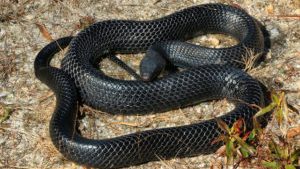Southeast CASC Scientists Improving Use of Climate Science in Species Status Assessments


Southeast CASC scientists, and scientists across the CASC network, are supporting the US Fish and Wildlife Service by providing reviews and training for the Species Status Assessment (SSA) process. SSA is a scientific assessment of species life history, biology, and consideration of current and future vulnerabilities that is used to inform a range of decisions under the Endangered Species Act, including listing determinations, consultations, grant allocations, permitting, and recovery planning.
Most regional CASCs are assisting with scientific reviews of SSA documents on the climate risks to species and their habitat. The Southeast CASC is helping to lead this effort with training on using climate science and the best practices in using climate data and climate model projections to assess risk. In February, SE CASC Deputy Director Ryan Boyles provided a 3-hour workshop on using climate science and models for the North Carolina Chapter of the American Fisheries Society. In November, Ryan Boyles and SE CASC Research Ecologist Adam Terando participated in the annual summit of the SSA Framework Implementation Team with a presentation and discussions on how to support the improved use of climate science and climate model projections by US FWS species biologists and SSA teams. Southeast and Northeast CASCs are planning pilot projects in the next year that will provide dedicated scientific and technical analysis to support SSA efforts in the eastern US.
- Categories: